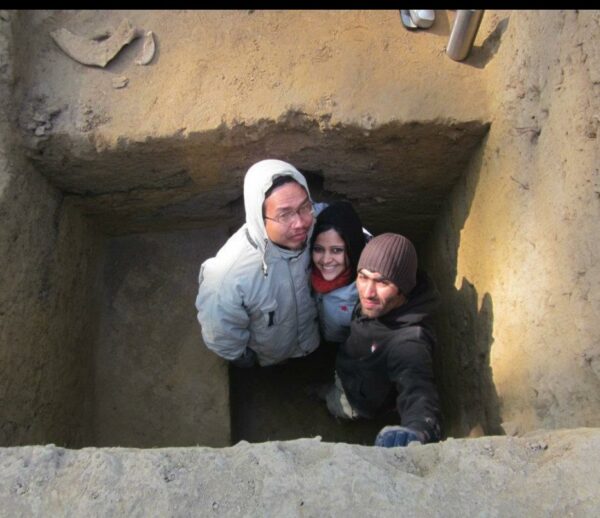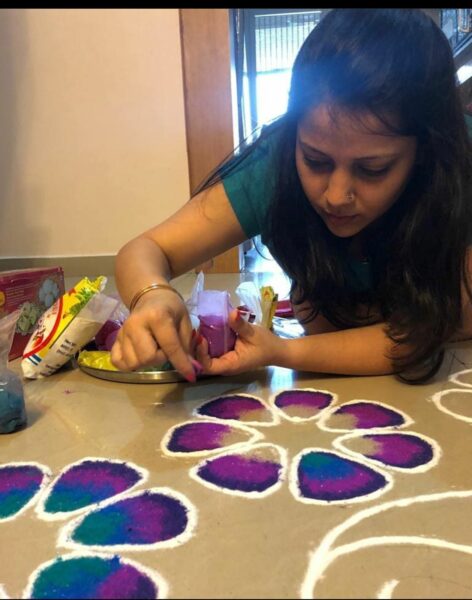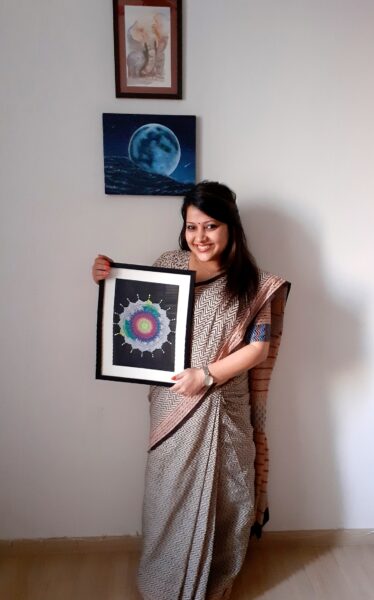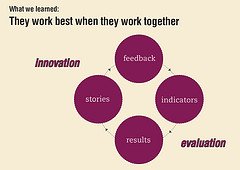We recently caught up with Dr. Prerana Srimaal who is the Assistant Professor in History at Christ University. She describes herself as “A collector of Memories, Miniatures, Stories and Experiences – those are the things that completely define me. ” Let us hear more about her story so far:
Q1. Tell us something about your journey so far?
I am a doctorate in Ancient History and Archaeology from the Centre for Historical Studies, Jawaharlal Nehru University, New Delhi. My research was on the narratives of the past that we create by navigating through the material remains (more specifically – ceramics) that we use and leave behind. The unnerving ways in which ‘things’ sometimes tell more about us than we are able to with words.

I have been a field archaeologist for 9 years, and have secured various international grants to work in diverse archaeological excavations and explorations in various parts of India, Middle East and South Asia in general – which has added to my firm belief that there are no stagnant stories of the past but instead the past is fluid, organic, and there are multiple ways in which it has been reconstructed and understood in the present.
My years in the field (as a Field Archaeologist), in the various corners of the world, where very few people live, or even venture into made me a firm believer in the memories that we make – and that we take with us. The amazing ways that we then retell those memories to the people we meet in our lives. The cycle of which is always in continuum – never ceasing, never failing to create even newer memories.
My research interests include a variety of assorted and connected ideas stemming from my experience in both history and archaeology – and they circle around material culture studies, gender studies and identity and memory politics – and at Christ I teach courses around these themes.
Q2. Tell us something about your experience in Christ University. How has that experience helped in shaping you as a professional?
My journey at Christ University began quite by chance. I was not planning to shift to Bangalore and neither was I planning to get into a completely academic life. I was just visiting my sister, and somehow serendipitously Christ happened, as if it was meant to be.
I was new to the world of a Professor, but I will have to say – it has been absolutely life-altering for me. The daily interaction with young, eager and bright minds, hobnobbing with some of the most intelligent people in the country as colleagues – It has made me be more self-aware and has really helped in the growth of my own vision.
I have ended up seeing my own areas of interest in new light – have come up with perspectives which I previously never explored or thought of. Further, as an archaeologist, even though we did a lot of collaborative work, but largely it is an isolated profession. I used to spend months in places where human civilization no longer lingers, and in some cases just in the company of myself and a colleague. But in Christ, my world completely changed! I am surrounded by hundreds of people at times, and talking to as many per day. It has made my world completely different, and I am really grateful for the luck to have experienced both!

This has resulted in me becoming more sensitive to the needs and demands of many, and multi-tasking with ease. We, as Professors have to not only facilitate learning, but also have to be sensitive to emotional needs, manage other student concerns, academic and research work – along with several University level, and sustainable developmental growth in the society that we live in. We wear many hats, and I am definitely learning my way around them all!
Q3. Tell us something about your daily work routine. How do you manage your stress levels in workplace which every professional faces these days?
Since past 1.5 years we have working in the online mode – I will tell you how my average WFH day looks like. I like getting up very early in the morning. Before the world is awake, as I love the peace and quiet that it brings along with it.
My day usually begins at 5.15 am, and from 5.45 am to 7.15 am I go for my usual morning run. While running, I do not usually listen to music, instead I listen to the morning sounds of birds, plants, breeze and milk vendors and its almost meditative to me. The morning time is my favourite of the day. And while running I also mentally plan the rest of my day. Once I am back home, a quick house cleaning, shower and yoghurt-based smoothie later, by 8.30 am I am back in my study and I begin my work day. Usually my lectures are in the morning to noon, after which I fix myself a quick light lunch (mostly dinner leftovers) and then my afternoons are usually full of work meetings. By 5 pm I take a break from work, and go out for a walk with either my sister or my best friend. We walk for an hour and half and chat away our stress of the day! Back home by 7ish, I take another bath, and then make dinner. Post that, I usually prepare for my next day’s lectures and finish up other work. Then by 9 pm, I am usually watching something on my TV, or I am with a book. By 10.30, I sleep off.

Now, during this entire time, I have largely lived alone – at times it has been tough, and lonely. Especially sometimes handling emotional stress of living through alone through a pandemic, coupled with insane amount of work and managing the house has been excruciatingly challenging. But my morning and evening routine of walks and runs has helped. Another aspect that helped me cope and manage my time were my plants. Am a plant parent as well – I spend at least an hour, sometimes 2-3 hours with my plants (I care for at least 200 of them – yes, my apartment is an urban jungle). Apart from that I also do several arts based and DIY home décor projects on my own. All of this together bring immense satisfaction to me, and definitely helps me cope better with the daily drudgery of life and accompanying stress.
Q4. What or who has been the biggest influence in your career so far? How do you balance your personal and professional career?
The kind of offbeat life (both professionally and personally) that I have led so far – has made one thing very clear to me. What has influenced me the most in life are not people – but rather experiences with people. My interactions with people, either the ones that I love and cherish or the complete strangers that I have come across and interacted with – they, their stories, they persona, their thoughts, their actions, and just the fluidity of the meeting and being with different kinds of people – has definitely been the single largest influence in my life. It has very prominently made me ponder over the absolute fluidity of our life, and the perceptions that we have. I have over a period of time become less of a value-judger, and more of the sensitive sponge. I am not very firm on beliefs and ideals any longer – I have become more of a context person – considering a situation or person as the context demands. This has made me less stressed too, as I no longer spend a lot of time anxiously worrying about people, or my work or my future. I know now things are fluid, nothing is certain and we only have today. So I try to maximise my ‘Today’ time.
And this realisation has actually made my life in general quite balanced. No matter how much work I have, I always make sure that I do go for my morning run (even if I need to skip my evening due to extra work on certain days). I always spend a little time with my plants, even if it is 5 mins on certain days because of a hectic schedule. I also make sure, that if I am too tired and anxious, then I stop the work (even if it is not complete) because that work will amount to nothing if done with an exhausted mind. I take a break, and relax before getting back to it. I also make sure that I am always connected with my family and close friends – they help me stay sane and I like to keep myself surrounded by my close circle. This is my Balance.
Q5. Which is the biggest challenge you have faced so far in the various roles you have worked in? What motivated you to make the transition from corporate life to teaching career?
I am largely an introverted person – I do not usually go out of my way to make friends, and my idea of a Saturday night is not necessarily being out and partying. I am mostly quiet, and I enjoy being home. So my biggest challenge has been interaction – constant and in some cases instrumental to the work that I do.
Whether it was a researcher, a consultant, an archaeologist or now as a professor – I have had to constantly interact, talk, and work with large number of people all at the same time. It has been quite tough, but my passion for my work has helped me through. The moment I have felt in any of roles, that it no longer challenges me, or I no longer feel called to it – I have quite promptly changed my roles or professions. I am a risk-taker that way, and I believe that growth is in doing what you look forward to on most days, rather than sticking to something because its expected of you.

This is one of the reasons I moved to a University job – it was challenging, tough but at the same time the joy of giving back to the society, and the responsibility of nurturing the minds of people that will spearhead our future worlds is both satisfying and exhilarating. No matter how many years you are a professor – each day you still meet new people, have completed unexpected conversations and your days and heart is always full!
Q6. How has the lockdown impacted you as a professional?
The lockdown has made me calmer, more patient as a person. It has by default made my professional side more in control also. In the beginning, like everyone else, I also struggled with the plethora of things to be done in a completely new environment. But as they say – any kind of change is largely messy and definitely uncomfortable. So has the lockdown been – but it has transformed me into a more relaxed, but at the same time a more disciplined person.
Q7. What would be your advice to young professionals and students?
I would just tell them the things that have worked wonders for me
- Nurture a Hobby – and participate in it everyday
- Involve yourself in some group activity – where you end up meeting strangers and bond with them – could be anything, reading club, photo-walks, hiking, anything! Having something like this to look forward to and achieving is always an adrenaline rush!
- Spend some time outdoors every day – in your balconies, or gardens, or a nearby park – and just listen to the sounds and smell the air. It really is a balm to the soul.
- Always remember – You are living this life, in the now! Don’t ever lose that. Live it, in the present, not the future or the past.
- Be kind to yourself – if you cannot be that, you can never be kind to anyone else either.
- Just like one is aware of their physical well-being, be aware of your mental well-being as well. Don’t ignore it. If your heart or mind is not in something, pay attention and work on changing it – Just don’t ignore it.
- And finally, always Question things – even question yourself! Don’t be a mute and dumb spectator to things, or a consumer of ideas. Be Pro-active and Inquisitive. Trust me, life is way more interesting and fun that way!
Q8. How would you describe yourself outside your work?
I am also an absolute lover of experiences and art (of too many kinds – and I fear I do not have space enough to list them all out!), handicrafts, coffee, and Books! And am a very paranoid plant parent as well – love my plant babies to bits! If you ever come to my home or my work-space, you will always be greeted with chocolates, coffee, and art of all kinds smiling at you from all around my wall – each with a story of its own, which I would love to share with anyone who wants to know.
Q9. Any suggestions for IdeasMakeMarket.com?
Maybe have more interactive spaces in your website, where people could come together as a forum and work on things. But otherwise, it really is a well-rounded website, and I enjoyed going through a lot of the articles!
Tags: Christ University Faculty Prerana SrimaalYou might like reading:

How Disruptive Innovations are changing the way we live !
The terminology found its way into the dictionary of executives, thanks to the 1995 article “Disruptive Technologies: Catching the Wave” by Clayton M. Christensen & Joseph Bower. The disruptive innovations will be a game changer not just in the development of product or technology but also in day to day business operations. It has become almost mandatory for executives to […]
Challenges of Human Capital Consulting !
It has been a long time or to be honest ever since its inception, Human Capital Professionals continue to exacerbate the perception of the “Bizz fraternity”, that HR does not provide bottom line to an organization. What value does this perception hold for HR domain and what can be its future implication? Is Human Capital Consulting evolving enough to eradicate […]































